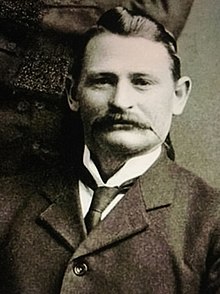
(FOX NEWS) – A massive dinosaur footprint of the Iguanodon
species, which dates back over 100 million years, has been
found on a beach in England.
Paleontologist Joe Thompson (above) a fossil guide with Wight
Coast Fossils who unearthed the print, told Fox News Digital
that he made the discovery on the Isle of Wight as he set out
for the beach with the intention of finding some fossils.
Thompson said "This footprint was absolutely massive — just
under roughly 3 feet long. So a pretty huge Iguanodon, a lot
bigger than almost every other Iguanodon footprint found on
that section of the coast."

An Iguanodon skeleton is displayed at the Natural History Museum in London. The footprint that Thompson found
came from this species.



















